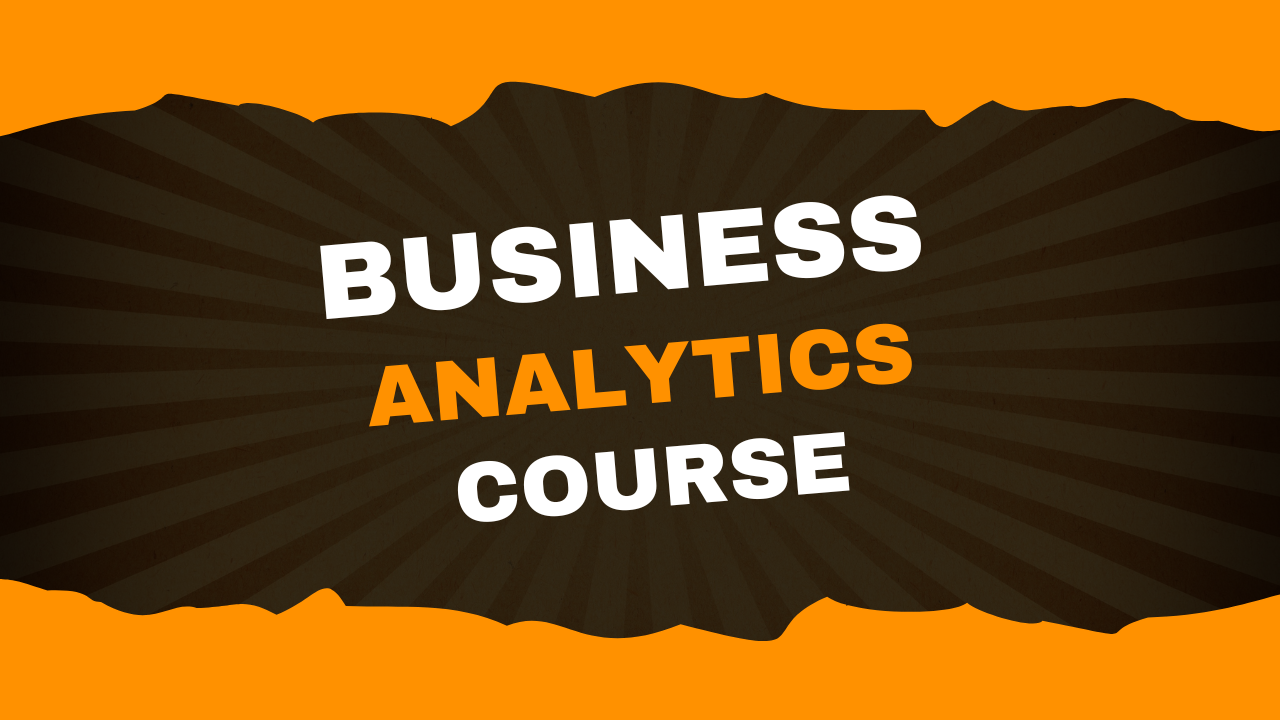Whether you’re looking to advance in your career or transition into a high-demand field, a business analytics course can provide you with the skills and knowledge necessary to thrive in the evolving job market. This article explores the key benefits of business analytics education, the skills you’ll acquire, and the career opportunities that await you.
Growing Importance of Business Analytics
Business analytics has become a crucial function in nearly every industry, from finance and healthcare to retail and technology. Companies use data analytics to identify trends, understand consumer behavior, improve operational efficiency, and drive strategic decision-making. As organizations continue to invest in data-driven strategies, professionals with analytics expertise are in high demand.
A business analytics course equips you with the ability to interpret and analyze data effectively, providing actionable insights that drive business success. With the right training, you can position yourself as an invaluable asset in any organization.
Key Skills You’ll Gain from a Business Analytics Course
A structured business analytics course provides both technical and strategic skills that are essential for leveraging data effectively. Some of the core competencies you’ll develop include:
Data Interpretation and Visualization
Understanding raw data is one thing, but being able to translate it into meaningful insights is another. A business analytics course teaches you how to:
- Use data visualization tools such as Tableau, Power BI, and Excel to present findings clearly.
- Interpret complex data sets to identify patterns and trends.
- Communicate data-driven insights effectively to stakeholders.
Statistical Analysis and Predictive Modeling
Statistics play a key role in data-driven decision-making. You’ll learn how to:
- Apply statistical methods to analyze business performance.
- Develop predictive models to forecast market trends and business outcomes.
- Use tools like Python, R, and SAS for statistical analysis.
Data-Driven Decision Making
A business analytics course teaches you how to use data to support strategic decisions. You’ll gain expertise in:
- Identifying key performance indicators (KPIs) and measuring business success.
- Conducting A/B testing and other experimental methods to optimize strategies.
- Making data-backed recommendations that align with business objectives.
Big Data and Machine Learning Applications
Advanced analytics courses often include training in big data and machine learning, helping professionals:
- Work with large data sets using Hadoop, Spark, and SQL.
- Apply machine learning algorithms to automate decision-making processes.
- Utilize AI-driven analytics tools to gain deeper business insights.
Business Intelligence and Reporting
The ability to transform raw data into actionable intelligence is essential for business success. You’ll learn:
- How to build dashboards and reports that provide real-time business insights.
- The fundamentals of business intelligence software like Microsoft BI, QlikView, and Looker.
- How to create compelling narratives around data to influence business strategy.
Career Benefits of a Business Analytics Course
Earning a certification or degree in business analytics opens the door to a wide range of career opportunities. Here are some ways that a business analytics course can elevate your career:
Higher Salary Potential
Data analytics professionals are in high demand, and organizations are willing to pay a premium for their expertise. According to industry reports, business analysts earn an average salary of $85,000–$120,000 per year, with more experienced professionals commanding even higher salaries.
Career Advancement Opportunities
With analytics expertise, you can move into leadership roles, such as:
- Data Analyst
- Business Intelligence Manager
- Data Scientist
- Chief Data Officer (CDO) These roles allow you to influence strategic decision-making at an organizational level.
Cross-Industry Demand
Business analytics skills are applicable across industries, including:
- Finance: Risk assessment, fraud detection, and investment analysis.
- Healthcare: Patient outcome predictions, hospital resource optimization.
- Retail: Customer segmentation, inventory forecasting.
- Technology: AI-driven product recommendations, cybersecurity analytics. By gaining business analytics expertise, you can transition into various industries without starting from scratch.
Enhanced Problem-Solving and Decision-Making Skills
A business analytics course sharpens your ability to approach problems methodically and make informed decisions. You’ll learn to:
- Break down complex business challenges using data.
- Identify root causes of inefficiencies and propose effective solutions.
- Develop a data-driven mindset that enhances strategic thinking.
Competitive Edge in the Job Market
Employers prioritize candidates who can demonstrate data literacy. By completing a business analytics course, you:
- Gain a recognized certification that boosts your resume.
- Stand out in job applications and interviews.
- Have practical experience with real-world data analysis projects.
How to Choose the Right Business Analytics Course
With numerous business analytics programs available, choosing the right one is critical. Here are factors to consider:
Course Content and Curriculum
Look for courses that cover:
- Data visualization and storytelling
- Predictive modeling and statistical analysis
- Machine learning and AI applications
- Business intelligence and reporting tools
Industry-Recognized Certification
Opt for programs accredited by recognized institutions or those offering certifications such as:
- Google Data Analytics Certificate
- Microsoft Certified: Data Analyst Associate
- IBM Data Science Professional Certificate
Hands-On Learning Experience
Practical experience is essential in analytics. Choose courses that provide:
- Real-world case studies and projects
- Access to industry-standard tools
- Internship or mentorship opportunities
Flexibility and Accessibility
Depending on your schedule, you may prefer:
- Online vs. in-person courses
- Self-paced vs. instructor-led training
- Short-term boot camps vs. full-degree programs
Our Recommendation
A business analytics course is a powerful investment in your career, equipping you with the skills needed to analyze data, make strategic decisions, and drive business success.
Whether you’re looking to enhance your current role, switch industries, or secure a high-paying job, learning business analytics can provide limitless opportunities. With the right training, tools, and mindset, you can leverage data to achieve remarkable career growth and professional success.

Sameer is the visionary behind Courseivy.com, which is dedicated to empowering learners through accessible, high-quality education. With a passion for creating transformative learning experiences, Sameer is contributing to filling the gap between knowledge and practical skills by bringing years of expertise in education and technology.

